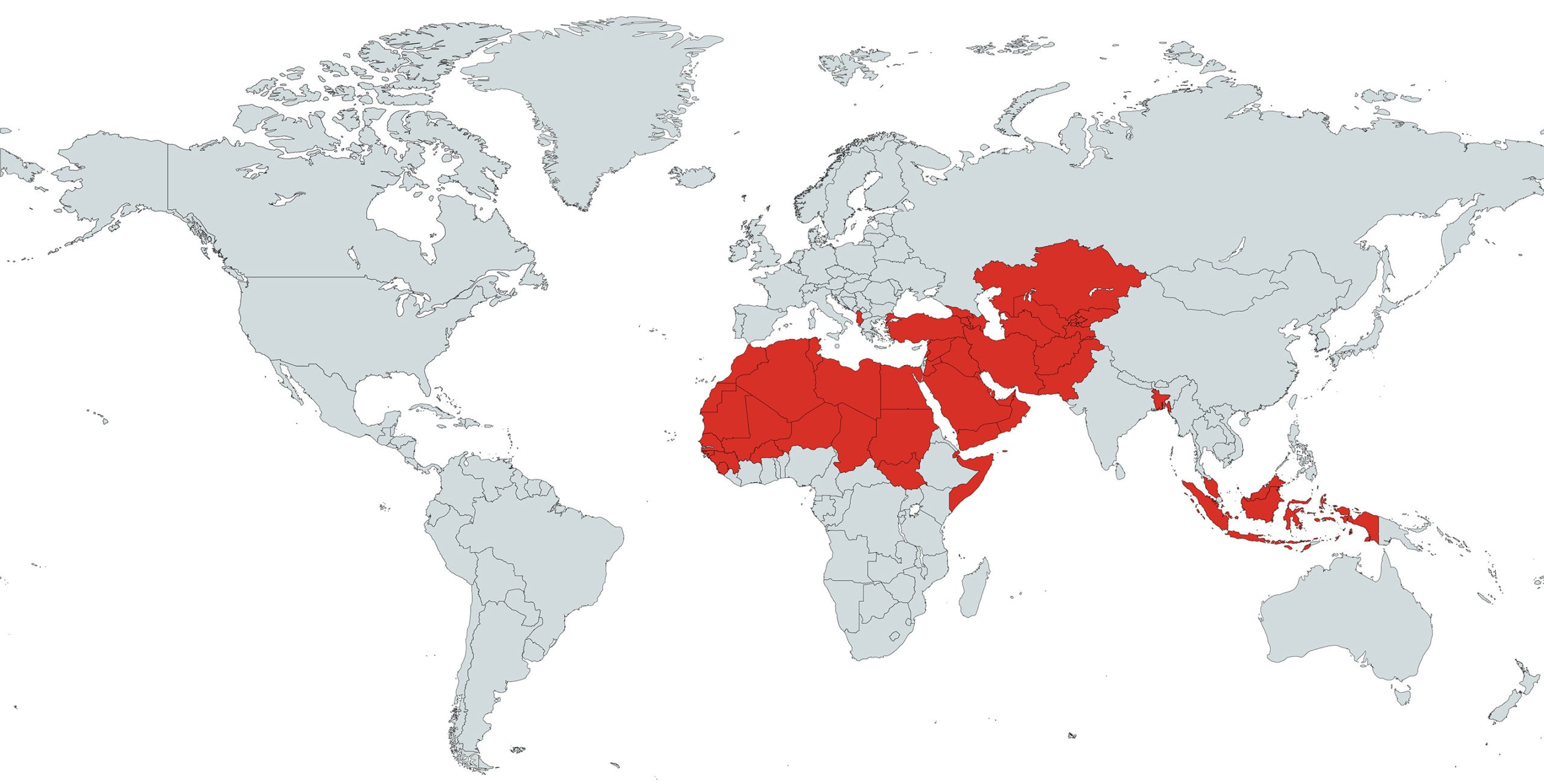The Islam faith is a monotheistic religion based around a religious text called the Quran. Its followers are devoted to the text’s teachings and consider it a holy scripture from God divinely inspired through a prophet named Muhammad. Islam dates back over 14th centuries, and nearly 25% of the world practices a version of this religion today, with over 1.9 billion Muslims worldwide. Although many people describe themselves as Muslims, many Islamic sects within the religion exist– each with their own interpretations of how the Quran should be followed.
Following Muhammad’s death, the Islam faith split into three main sects: Sunni, Shi’ah, and Khawarij. The Sunni sect believed the prophet Muhammad did not appoint a successor; whereas, the Shi’ah thought that leadership should continue from within Muhammad’s family. The Kharijites did not agree with either sect on this issue, and even split from the other two during an Islamic Civil War in the 7th century.
Sunni Islam
More than 85% of Islamic followers are Sunni. A key foundation within the Sunni sect is a lack of formal hierarchy. Learning Islamic law and theology is enough to gain leadership within this faith. However, the Sunni faith has numerous schools of theology (aqīdah) and legal understanding (fiqh) that a believer could learn. They include:
Ash’ari: This subsect follows all of the prophets of Islam and believes in angels.
Maturidi: This subsect places high value on science and reason
Traditional (Hanbali, Hanafi, Shafi‘I, Maliki): These schools of thought form the basis of traditional Sunni Islam.
Shia Islam
Although a minority in the Islamic faith, many followers in the Middle Eastern Muslim community are Shia’ah. Shi’ites believe that leadership derives from descendants and relatives of the prophet Muhammad. Principles of infallibility (freedom from sin) and occultation (presence of a Messiah) are also key beliefs of Shi’a Muslims.
Like the Sunni tradition, there are many subsects within the Shi’ah tradition. They include:
Twelver (Ithnāʿashariyyah): The majority of Shia Muslims follow this tradition.
Sevener (Isma’ilism): This subsect places high value on numerology and the angel Gabriel.
Fiver (Zaydi): This Shia minority does not believe in the infallibility of imams.
Conflicts between Shi’ah and Sunni Muslims in the Islamic world have existed since the first Islamic Civil War. Most recently, Shi’ites have been targeted by the Islamic State.


Kharijite Islam
The revolutionary Kharijites are a minority amongst Muslims worldwide; however, their legacy continues in the Ibadiyya tradition in parts of North Africa. The Kharijites had similarities to both Sunni Muslims and Shi’ah traditions. Like the Sunni, they believed that anyone capable could hold leadership positions within the Islam faith; however, they did not limit this to those of Arabic ancestry.
While this sect is the least known, it has made contributions to Islamic teaching and has produced numerous Islamic poets and Muslim scholars. Most noticeably, the Kharijites were originally known for defending their beliefs with violence and persecuting nonbelievers. The surviving sect is the most moderate form of this version of Islam.

Other Forms of Islam
In addition to the three main sects of Islam, other versions that challenge or expand the faith have formed throughout the years. For many Muslims, these versions are not considered legitimate. They include:
Quranism – This version of Islam believes the role of the clergy in Islam is corrupted and places the Islam holy book, the Quran, above all.
Alevism – This version of Islam is primarily based on oral tradition and has no formal dogma. It began in the 14th century and is commonly practiced in Turkey.
Ahmadiyya – Originating in India in the 1880s, this version seeks a reformed version of Islam in South Asia based on the teachings of Mirza Ghulam Ahmad.
Faradian- Based in the United States, this version of Islam began in the 1930s by Wallace Fard Muhammad. He taught an ethnically based version of Islam, known as the Nation of Islam, to black Americans.

Islamic Views Towards Non-Believers
Although there are many Islam sects, belief in Allah as the one God is crucial to the religion of Islam. As a result, among all sects, nonbelievers are treated with disdain. In the case of some subsects, they face death. Within the Quran, Islam separates nonbelievers into various types, including:
People of the Book: believers of other Abrahamic religions such as Jews and Christians. These groups are typically considered ‘protected persons’ in the Muslim community but must abide by Islamic law. In most cases, People of the Book may only pay a poll tax.
Mushrikun: based on the holy books, those practicing polytheism are considered idol worshippers and may face severe penalties. However, many have challenged the Sufi sect’s use of saints, and tolerance of Hindi believers in India, as deviations from this view.
Sinners: Islamic non-believers. Depending on the sect, Muslims who fail to practice their faith correctly may face severe penalties that typically include death. For many Sunnis, practicing a different sect of Islam is grounds for death. On the other hand, Kharijites allow their members to repent.
Dhimmī: those who do not practice Islam. Non Believers in an Islamic state may be required to pay a poll tax, leave, convert, or face death.
